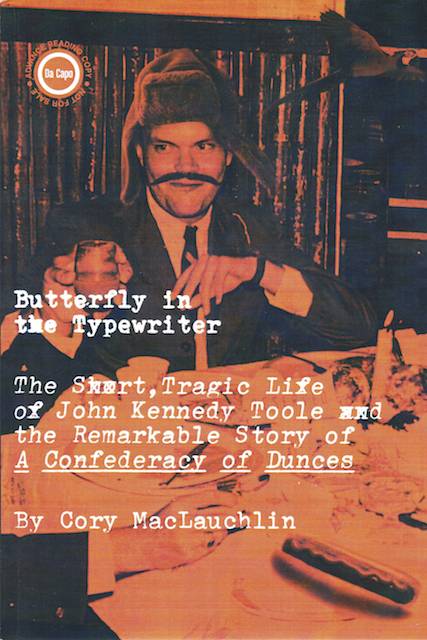He was, history now contends, one of the greatest writers New Orleans ever produced, perhaps the only such contender born (unlike Lafcadio Hearn) and raised (unlike Truman Capote) in the Crescent City. The singular metropolis saw its singular scribe into the world (Touro Infirmary, Garden District) in 1937; thirty-two years later, still short of Toole’s 32nd birthday, his mortal remains went into his mother’s family tomb, the Ducoing tomb, at Greenwood Cemetery, though everyone was careful not to mention the cause of death, suicide then as now anathema to Catholics. As Cory MacLauchlin writes, “It was an usually quiet end to a life that held such promise, a life that had been tailored for brilliance.” Three people mourned him at St. Peter and Paul Church on Elysian Fields: his mother, his father, and the woman who’d looked after him as a child, Beulah Matthews. Then the first two, but possibly not the third, accompanied the casket to Greenwood.
What happened? Frankly, impossible to say, to be exact. The domineering mother, the molasses of genteel poverty, the encroaching mental illness, and the doors slammed on him and his masterpiece, A Confederacy of Dunces, certainly bubbled the brew. MacLauchlin disputes Toole’s previous biographers so far as homosexuality and alcoholism.
Toole’s doom has become legend, especially to those of us with bloody squashed hearts smearing our sleeves. Butterfly reminds us in the end, though, to celebrate our blessings through its subject. He saw, he imagined, he laughed — sometimes a little too cruelly — but he transcended deep darkness with the depth of his mirth, and understanding.





